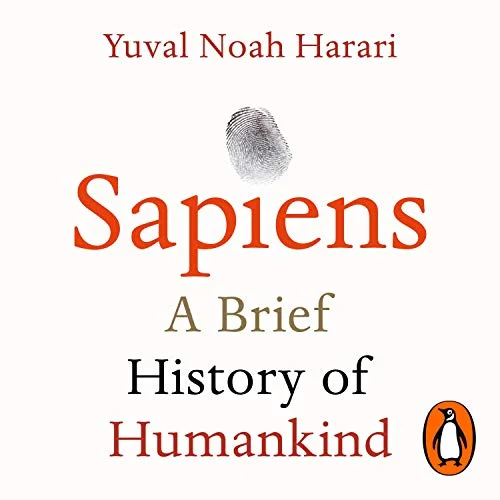Sapiens: Your Crash Course in Being Human
Ever wondered how we, Homo sapiens, came to rule the planet? Yuval Noah Harari’s “Sapiens” is a mind-blowing journey through human history, taking us from cave dwellers to smartphone users. It’s a history book, but with a twist – it’s not just about dates and battles, it’s about big ideas and how we shaped the world (and ourselves) along the way.
Key Takeaways – A Desi Perspective
- We’re Storytellers: Unlike animals, we Homo sapiens create stories – religions, nations, companies. Think about it – our ‘India’ isn’t just land, it’s a shared story we believe in.
- The Agricultural Revolution: A Double-Edged Sword: Sure, farming led to settlements and civilizations, but it also brought inequality, disease, and back-breaking labor. Harari reminds us that “progress” isn’t always rosy.
- Money: The Ultimate Fiction: In India, we love our gold and rupees, but Harari points out money is just a collective belief. We trust it has value, and that shared trust makes the economy work.
- The Scientific Revolution: A Game-Changer: The thirst for knowledge led to breakthroughs in science and tech. This explains India’s own ancient knowledge systems AND our modern space missions!
- The Future of Humankind?: Harari questions if we’re really any happier despite all our advancements. He ponders a future where we’re not just humans, but modified beings with technology.
Real-Life Examples in India
- Caste System: This is a complex social hierarchy, but Harari would argue it’s a shared story we’ve built over centuries.
- Religious Diversity: India is a melting pot of beliefs. Each religion, according to “Sapiens,” is a powerful narrative that shapes behavior.
- India’s Economic Growth: Our booming tech scene shows how the scientific revolution plays out in modern India.
- Social Change: Movements like gender equality challenge old stories and create new ones.
Why Read “Sapiens”?
This book isn’t your boring history textbook. It’s engaging, thought-provoking, and will make you question everything you thought you knew about being human.
Who Should Read It?
- History Buffs: You’ll get a completely new perspective on familiar events.
- Curious Minds: If you love big questions about the meaning of life and our place in the world, this book’s for you.
- Anyone Interested in India’s Future: “Sapiens” makes us think about the kind of society we’re building, especially as technology advances rapidly.
Conclusion
“Sapiens” is a wild ride through human history, and it’s got plenty of lessons for India. It’s a book that can spark conversations, challenge your beliefs, and ultimately make you a more informed and thoughtful citizen of the world.
Important Links (if possible):
- Yuval Noah Harari’s Website: https://www.ynharari.com/
Buy Sapiens: A Brief History of Humankind on Amazon






